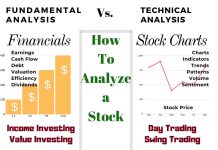★ Fundamantal Financial Analysis ★
- Fundamental Analysis
- Financial Health Metrics
- Leading Indicators
- Financial Statements & Ratios
- Income Statement
- Balance Sheet
- Accounts Payable
- Profitable Assets
- Debt to EBITDA
- Financial Leverage
- ROCE
- Net Profit Ratio
- Long-term Debt Ratio
- Investment Turnover
- PEG Ratio
- Return on Average Equity
- Operating Profit Margin
- Times Interest Earned Ratio
- Cash on Hand
- Inventory to Sales Ratio
- Total Asset Turnover
- Debt to Capital Ratio
- Fixed Charge Coverage Ratio
- Economics
Fundamental Analysis of Stocks
Unlock the secrets of successful investing with fundamental analysis! Dive deep into company financials, explore earnings and master valuation techniques. Get to know balance sheets and income statements, and don’t overlook the treasure trove of insights found in annual reports.
Is The Stock Market Overvalued? The Data Says Yes!
According to the Shiller PE Ratio, the US stock market is currently 19.2% overvalued compared to its 200-month moving average. Currently, the PE ratio of the S&P 500 is 31, and the 10-year average is 26.
Stock Market Crashes: History, Causes & Effects
Our research shows that asset bubbles, easy access to cheap credit, weak regulation, and poor institutional risk management are the causes of crashes.
How To Analyze Stocks with Fundamental & Technical Analysis
There are two ways to analyze stocks. Fundamental analysis, which evaluates criteria such as PE ratio, earnings, and cash flow. Technical analysis, which involves studying charts, stock prices, volume, and indicators.
Sharpe Ratio Investing for Better Risk-Adjusted Profits
The Sharpe Ratio provides insight into the return generated per unit of risk and is vital for both individual investors and financial professionals looking to optimize their portfolios.
Using Earnings Power Value To Unlock Quality Profits
Earnings power value provides a clear measure of a company's ability to generate profits over time. It looks at consistent income rather than temporary earnings spikes, giving a truer picture of a company's performance.
How to Use Price-to-Book Ratio for Smarter Investing
The P/B ratio compares a company's market value to its book value, revealing how much investors are willing to pay for each dollar of a company's net assets.




